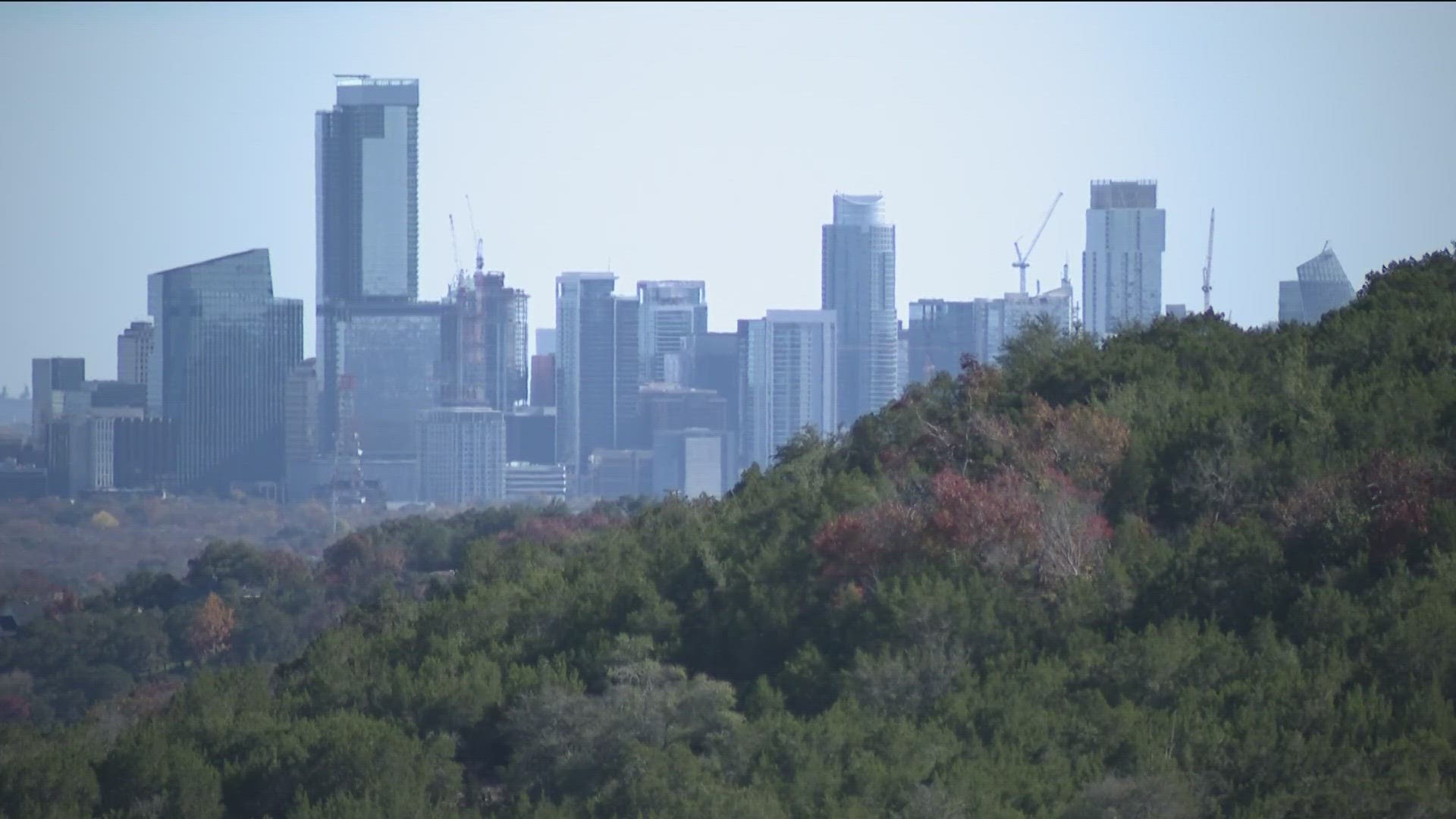AUSTIN, Texas — Itchy, watery eyes and runny noses: cedar fever is hitting Texans hard.
Looking at Monday's allergy count, the amount of cedar was mind-boggling to allergist Dr. Allen Lieberman.
"Fifteen thousand? Oh my God, that's incredibly high," Lieberman said. "That might be the highest level I've ever seen early in the season."
People across the Austin area are bearing the brunt of it, leaving them searching for remedies.
"When we first crossed the border into Texas, the first thing my mom did was sneeze," Claire Hoelting said. "I'll go to the gym or something and everybody's coughing, and it's kind of gross. Just sleeping it off, taking as much Benadryl as you can. Oh, drinking tea. Allergy pills."
Fellow Austinite Austin Jacobs is also struggling with allergies.
"I came here seven years ago to go to UT, and that was the first time I started experiencing some amount of allergies," Jacobs said.
If you think consuming some Central Texas honey or bee pollen will help ease the sniffles, we've got bad news.
"So, it's a big fallacy because the reason why cedar pollen is so bad is that it's very small and very light and it gets blown by the wind," Liberman said. "That's how the trees pollinate and carry on the species. Bees pollinate flowers – they don't pollinate cedar trees. So, I'm not really sure why the logic of taking bee pollen is going to help when you have an allergy and due to airborne allergens.
Instead, Liberman recommends having several battle plans for allergy sufferers.
"Stay indoors. If you have to go outside, wearing a mask can definitely be helpful," Lieberman said. "A combination of an antihistamine and a good nasal spray work really, really well. Starting and stopping doesn't work as well, so just go load up for the next four to six weeks ... If those don't work, that's when you want to find an allergist and get on a good long-term treatment plan because this can get worse every year."

